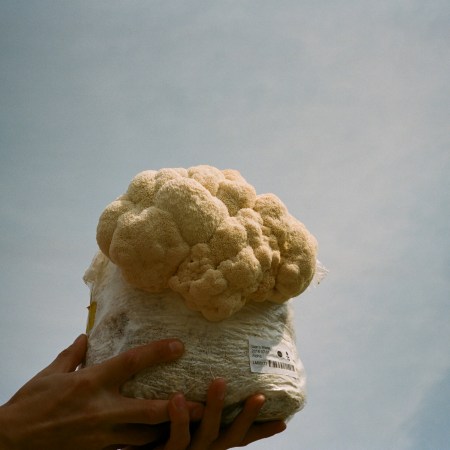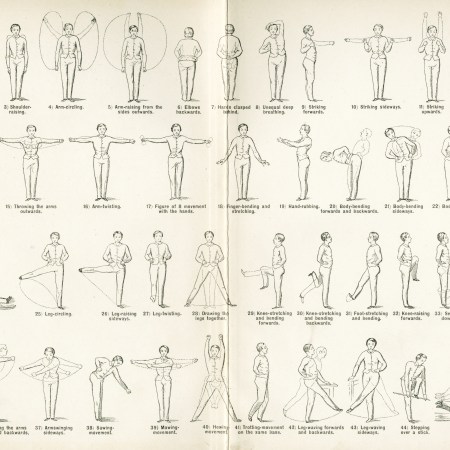Yuka’s arrived Stateside.
The health app has proven a sensation in France since it launched back in 2017. Using Yuka’s nifty barcode technology and an extensive database of registered products, consumers are able to summon definitive ratings of the snacks, drinks and ingredients they find along grocery store shelves — or already sitting in their own pantries.
Designed by brothers Julie Chapon, François Martin and Benoit Martin, Yuka became enough of a phenomenon in France that one supermarket giant, Intermarche, vowed to reform 900 of its saltiest/sweetest recipes. And it took a minute, but Yuka is now making waves on this side of the pond; it’s currently the fourth-ranked free health and fitness app in the App Store.
Spoiler alert: we’re fans, and we think you should download it. But the app has weathered some criticism as of late, especially from TikTok dietitians. Here’s how to use it, why you should and the reason a subsection of people are upset.
Plus: a sneak peak of the worst rating we’ve seen on the app yet.

How it works
Yuka’s a pretty instinctual app, and especially now that we’re so used to pointing our phones at “QR code menus” in restaurants. The homepage is a camera with a scanner, capable of capturing any product barcode in the app’s system. It’s uncommon that Yuka doesn’t have a product in its database, though the app’s international rollout is ongoing, so we can excuse them for not having information on every obscure granola bar at Whole Foods. Users are able to enter information for a product themselves, if the spirit moves them.
Once you’ve scanned an item, its product page pops up, with a score out of 100 and a traffic cone-type rating from red (bad) to forest green (excellent). Beneath will appear a summary of the product’s negatives and positives. The former might point out that the product has “additives to avoid,” like texturizing and anti-caking agents, while the latter might celebrate a product’s richness fiber, or lack of sugar.
We’re here for the recs
Everything you scan is permanently accessible under the History tab. And in the event that a product doesn’t receive a rating over 50 (the bare minimum to qualify as “good” in the Yuka app) it will also appear under the Reco tab, next to a product that you might consider subbing it for. In the wide world of wellness, this is typically where apps start to shill for brands, but Yuka is fiercely independent. It refuses to accept money from brands, and earns its bread via a sliding scale membership that maxes at $19 a year.
Personally, we think the flat fee is worth it, as it offers A) unlimited search of the Yuka database (otherwise you can only fetch the information of products you’re literally holding in your hand) and B) allows for offline scanning (which is clutch, considering how many grocery stores are underground…though admittedly, this is mainly an issue in urban areas).
At any rate, the free version of the app will auto-generate alternatives to whichever scanned product didn’t make the grade. It’s an appreciated and actionable extra step; when we learned our oat milk was chock-full of preservatives, we switched to one with no hazardous substances or synthetic herbicides. And after whimsically scanning our 4:00 office snack of choice (salt and vinegar potato chips), we discovered nominations for popcorn, seaweed snacks and nuts in a similar seasoning.
0/100
One of our favorite things to do with Yuka is find “foods” (relative term here) that throw up a goose egg. It helps to pay for premium here, so you can search on a whim, though there’s an aisle at the grocery store — you know the one — where 100 products would have a hard time adding up to a 100 rating…combined. Some proud zeroes: Cheetos Puffs, Captain Crunch, Coke. Anything with an anthropomorphic mascot is likely hovering down near nothing.
Meanwhile, there are plenty of “comfort foods” that draw somewhere between 5 and 30 points, due to crazy amounts of salt, or fat, or food coloring. We didn’t find this to be particularly surprising for any products. Of course Kraft Macaroni and Cheese, for instance, got a bad rating. We’d be more concerned if it rated well, as Yuka’s categorization strategy (which assesses a product’s Nutri-Score, use of additives and organic origins) would lose all credibility.
Finding a zero or similar in the wild is a reminder that highly-processed crap is still going strong. Is there ever a world where it makes sense to eat something without a single nutritional point of value? Not really — but maybe there’s something freeing in knowing that you can partake of nutrition’s absolute rock bottom once in a while (big games, road trips, birthday parties) and be okay.
More Reviews
Why the “100-Mile Diet” Is the Only Diet Actually Worth Your Time and Effort
Eating locally won’t necessarily save the planet. But it will completely redefine your relationship to food.“Clean eating”?
In order to combat self-defeatist diet cycling, nutritional experts have championed “intuitive eating” in recent years, imploring adults to stop thinking of foods as “good” or “bad,” and to start thinking about how food makes them feel — both in the moment, and in general. The idea being: same as the bladder or a knee, the body sends important biological clues as to whether it can handle a certain type of food, in a certain amount, at a certain time of day.
Fad diets, meanwhile, tends to advance inane and impersonal rules that put way too much pressure on their desperate followers. When these dieters slip up, they sometimes devolve into what’s known as the “what-the-hell-effect,” eating even more than they did before they signed up for their new meal plan. Some have expressed concern that Yuka advocates for a problematic and unattainable “clean eating” diet, via which its devotees will grow obsessed with the ratings of food, and swear off any products with too many calories or artificial ingredients.
Which is possible, of course. But it’s also a pretty depressing take. Yuka is no cult; it’s a tool. The reason it’s gotten so popular is because it’s meeting people where they are — the scanning tech, the out-of-100 rating…these are things that are more easily digested than poring over the vitamin percentages in a Nutritional Facts chart. Yuka’s system is by no means perfect, but that’s something that people need to learn from themselves along the way. (For example: the app tends to dock points from products like peanut butter, or extra virgina olive oil, for being too fatty or caloric. But these are healthy foods that just happen to be hefty.)
The rating is more of a guidepost. What’s the difference between a 78 and an 84? Well, who cares? Those are good scores, which capture the general essence of a product — go ahead, make a meal with it. The shitty ratings down near the bottom are the ones you probably shouldn’t see as negotiable. In other words: Yuka can disseminate an honest appraisal on the merits, or lack thereof, of a sugar-rich yogurt. But if you’re trying to reach a consensus on whether it would be healthier for you to cook sockeye salmon or Arctic char tonight, you’ve lost the plot.
TikTok critiques
Another critique, meanwhile (you can find some anti-Yuka sentiment on TikTok here) revolves around the perceived lack of respect that Yuka reserves for the inflated cost/paltry serving size of its recommended products. And it’s true — Yuka sort of just slots in whatever it’s determined as healthier, without acknowledging the fact that sometimes, the “lesser” product is simply more convenient.
But hey, Yuka’s job has to stop at some point. It’s free, after all. Perhaps that’s just where the app leaves you? Parents are especially familiar with the imperfect mental calculus that grocery shopping requires. Building out a fridge, pantry and snack drawer that satisfies a household’s worth of stomachs is a thankless ask. Yuka brings some order to the madness, though, by rooting out obvious no-gos, offering a bit of nuance between products that seem like the same thing, and suggesting a step away from brand loyalty, at least once in a while.
There’s also an aspirational/inspirational bent to the app; you could let bad ratings get you down, or you could try adding some good ratings to your weekly lineup. While we respect the tireless work that nutritional experts have done on this side of the 2020s to combat dietary obsession and weight loss culture, let’s remember: there is nothing wrong with pointing out that a particular food is healthy. Maybe there are no “good” foods, but there are certainly good decisions. Downloading Yuka is one of them.
This article was featured in the InsideHook newsletter. Sign up now.






















